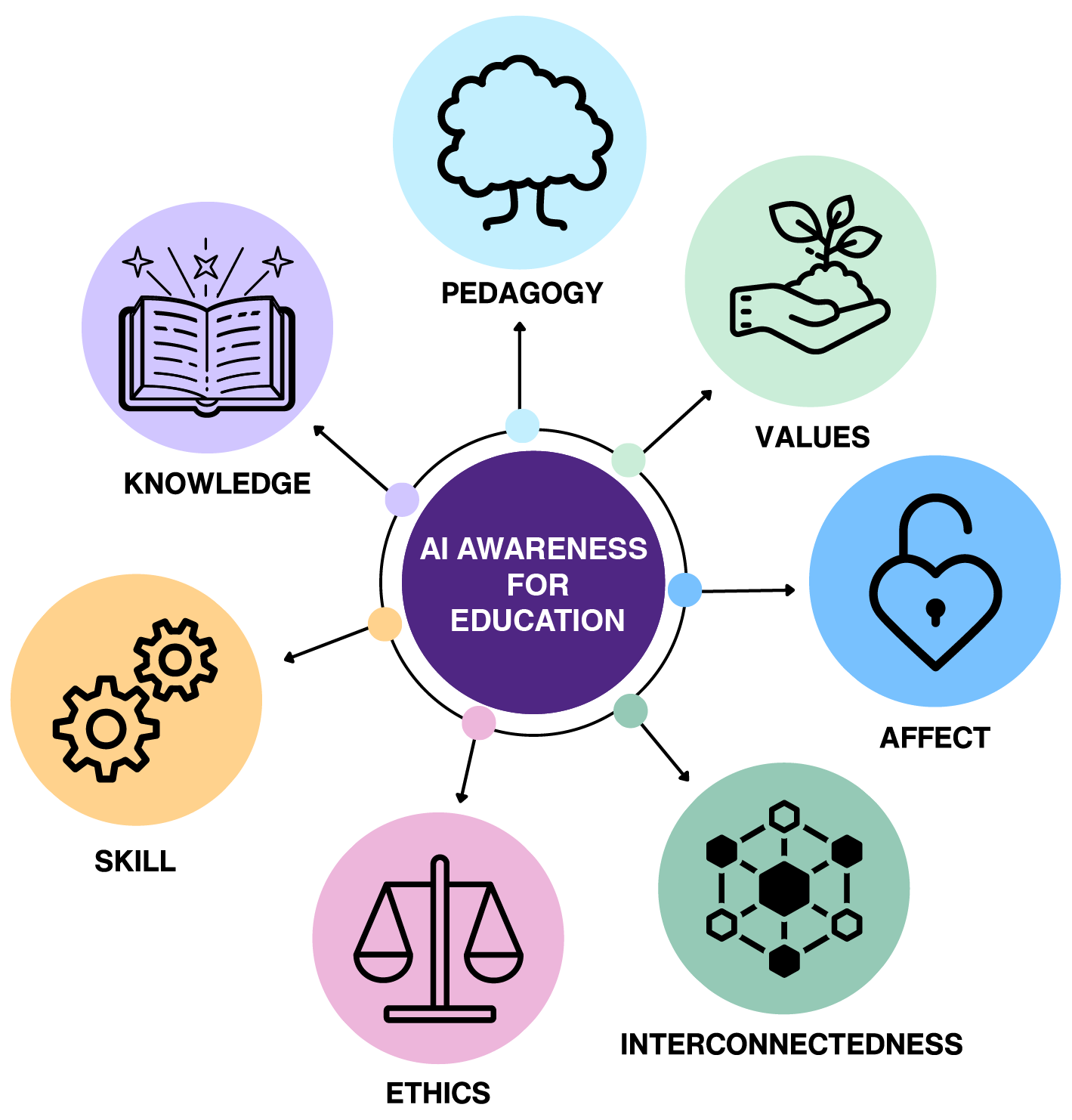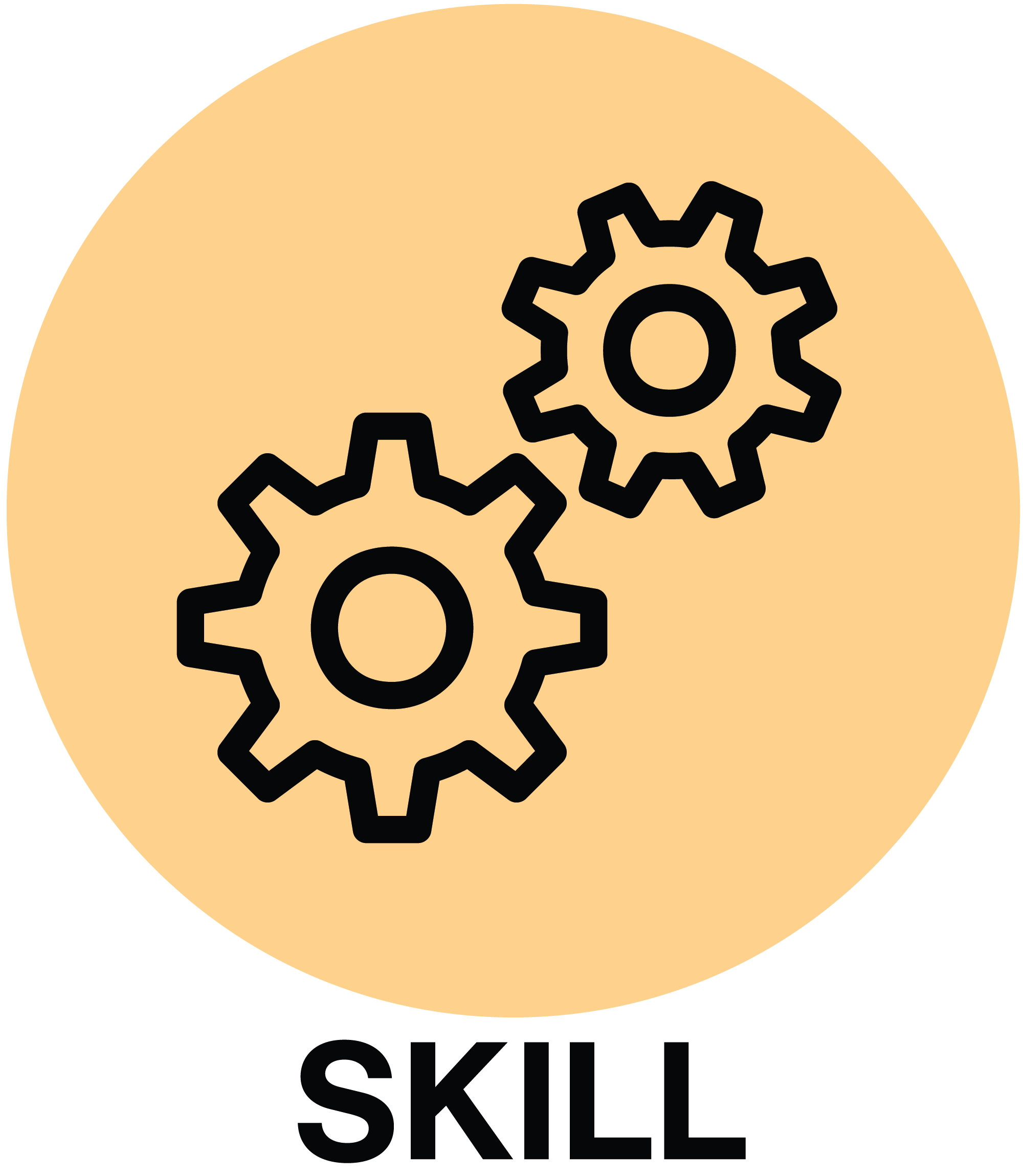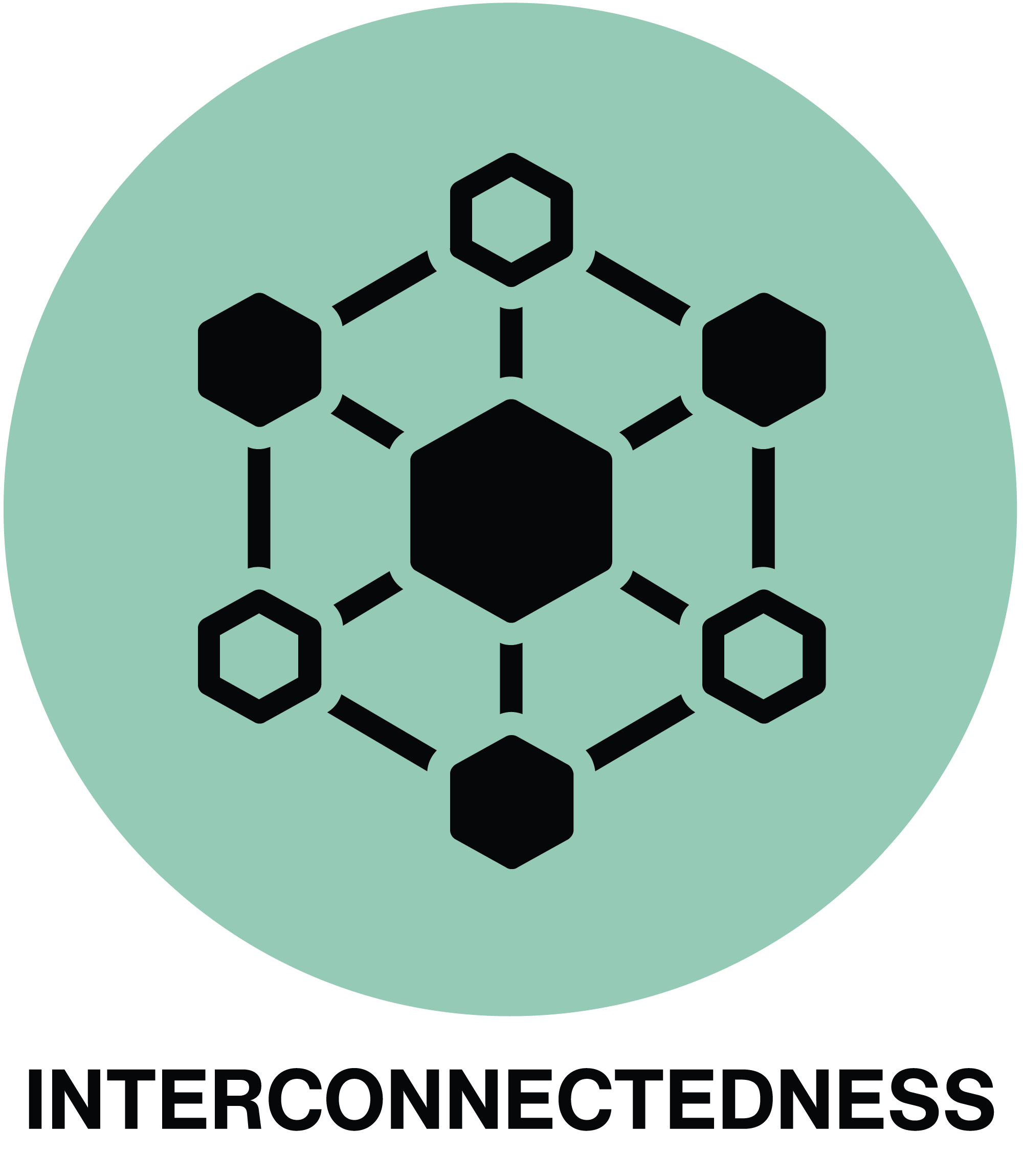Domain of AI-Awareness for Education
Introduction
This resource provides an overview of key considerations when exploring the impact of generative AI on Teaching and Learning. It is built around 7 domains of AI-Awareness: Knowledge, Skill, Ethics, Values, Affect, Pedagogy and Interconnectedness. You can dive into the sections that align with your specific questions and interests in generative AI.
Throughout, there will be opportunities to reflect and to engage in different activities designed to allow you to explore the domains of AI-Awareness. At the end of each section, you can reflect on your own level of awareness within each domain.
These will be indicated as follows:
This resource is intended for anyone working in a higher education space, but was developed at Western University. Throughout, there will be some specific references to Western resources and policies. You are encouraged to seek out similar information at your own institutions.
The generative AI landscape, including the capability of generative AI, information about the social impact, and other details are constantly and rapidly evolving. This resource should be considered a living resource and will be updated regularly to reflect changes.
If you have feedback, would like to report inaccuracies, typos, or other issues, please contact me at ddilkes2@uwo.ca or submit your feedback anonymously here.
This resource was last updated on 22-August-2025. You can find the revision history here.
The introduction of generative AI has had an unsettling effect on the education landscape. It has surfaced questions about the nature of knowledge production, the design of assessment, the roles of both learners and instructors within the learning environments, and the purpose of education broadly.
There are also increasing demands for educators and students to develop AI Literacy, which can be understood broadly as the ability to understand and use generative AI technologies. Many AI literacy frameworks are built upon an assumption that generative AI use is either desirable and/or inevitable; thus, focused on building capacity to use these technologies effectively through the development of knowledge and skill, often with an ethical or human-centred lens (Hibbert et. al., 2024; UNESCO, 2024; Stanford Teaching Commons, n.d.).
Common across many definitions of AI Literacy include the ability to:
- Understand what AI technologies are and how they work
- Use AI technologies effectively to achieve your goals
- Critically evaluate generative AI outputs
- Develop practices that acknowledge broader ethical issues of AI
(Ng et. al., 2021; Miao and Cukurova, 2024, Becker et. al., 2024)
However, many AI Literacy frameworks fall short of critical engagement with AI technologies and practices, including allowing for the possibility to choose to not use generative AI technologies. Furthermore, they often fail to recognize the socioemotional aspects of AI discourse.
As an alternative, the Domains of AI-Awareness Framework shifts the focus from use to critical awareness, arguing that this awareness is essential for making informed decisions about generative AI adoption and the development of new pedagogical practices.
This framework expands on the typical focus on knowledge and skills and includes:
- Developing a practice that aligns with our individual and collective values
- Recognizing and managing our emotional response to AI-technologies
- Understanding how AI technologies and AI practices are interconnected with other factors within larger educational and social structures

Knowledge: What do educators need to know about how generative AI works, how it’s trained, and how it’s developed?
Ethics: What ethical considerations do educators need to be aware of when choosing to use/not use generative AI?
Value: How do an educator’s fundamental values impact their pedagogical practices and their approach to generative AI? How can an educator’s values conflict with the values of peers or organizations?
Affect: How can educators navigate their emotional response to generative AI technologies and to others with different values or practices?
Skill: What skills are required by educators and learners to use generative AI technologies effectively?
Pedagogy: What impact can generative AI technologies have on teaching and learning? How can we reimagine education to minimize the negative impact and maximize the positive potential?
Interconnectedness: How are generative AI technologies and practices impacted by larger institutional, social, and political factors?
To get started, click on any of the sections below:
Table of Contents
Domain of AI-Awareness for Education
Part 1: Foundations of Generative AI (Knowledge)
- 1.1 What is Generative AI?
- 1.2 What do we know about how large language models work?
- 1.3 Summary & Reflection
- 1.4 References and Additional Resources
 Part 2: Ethical Considerations of Generative AI (Ethics)
Part 2: Ethical Considerations of Generative AI (Ethics)
- 2.1 Overview and Outcomes
- 2.2 Privacy, Intellectual Property & Copyright
- 2.3 Access & Accessbility
- 2.4 Environmental Impact of AI
- 2.5 Bias
- 2.6 Misinformation, Disinformation & Mal-Information
- 2.7 Summary & Reflection
- 2.8 References and Additional Resources
 Part 3: A Values-Based Approach to Generative AI (Values)
Part 3: A Values-Based Approach to Generative AI (Values)
- 3.1 Overview and Outcomes
- 3.2 Individual Values
- 3.3 Fundamental Values of Academic Integrity
- 3.4 Crafting the Syllabus Statement
- 3.5 Summary & Reflection
- 3.6 References and Additional Resources
Part 4: Emotional Considerations of Generative AI (Affect)
- 4.1 Overview and Outcomes
- 4.2 Emotional Intelligence
- 4.3 Summary & Reflection
- 4.4 References and Additional Resources
Part 5: How to use Generative AI (Skill)
- 5.1 Overview and Outcomes
- 5.2 Context Engineering
- 5.3 Critically Appraising AI Outputs
- 5.4 Summary & Reflection
- 5.5 References and Additional Resources
Part 6: Teaching & Learning with Generative AI (Pedagogy)
- 6.1 Overview and Outcomes
- 6.2 Impact on Learning
- 6.3 GenAI to Support Learning
- 6.4 Assessment Design
- 6.5 Levels of AI Integration in Learning and Assessment
- 6.6 Summary & Reflection
- 6.7 References and Additional Resources
Generative AI is a type of Artificial Intelligence that creates new content, including text, images, videos, audio, and computer code.











Feedback/Errata